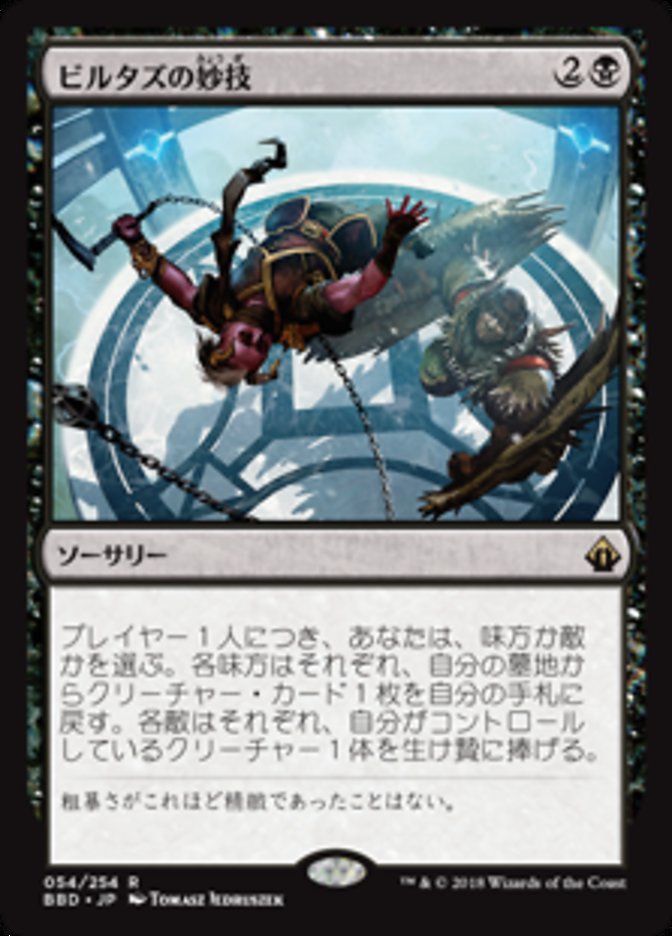セット名バトルボンドレアリティレアコレクター番号 54言語日本語

ビルタズの妙技
ソーサリー
プレイヤー1人につき、あなたは、味方か敵かを選ぶ。各味方はそれぞれ、自分の墓地からクリーチャー・カード1枚を自分の手札に戻す。各敵はそれぞれ、自分がコントロールしているクリーチャー1体を生け贄に捧げる。
フォーマット
スタンダード : 不可パイオニア : 不可モダン : 不可レガシー : 可能ヴィンテージ : 可能パウパー : 不可統率者戦 : 可能デジタル専用フォーマット
アルケミー : 不可ヒストリック : 不可タイムレス : 不可リミテッド評価値
リミテッド評価値が存在しません。
同名カード
カード裁定
2018/06/08
原文When Virtus's Maneuver resolves and you choose friend or foe, first the next friend in turn order (or, if it's a friend's turn, that friend) chooses a creature card in their graveyard, then each other friend in turn order does the same, then each of those players return those cards to their hands at the same time. Friends will know choices made by earlier players when making their choices. Repeat this process for foes, who choose a creature one at a time and then sacrifice them all at the same time.
2018/06/08
原文You make this choice for yourself as well as each other player. In some rare cases, you may wish to call yourself (or your teammate in a Two-Headed Giant game) a foe. You can do that.
2018/06/08
原文The designation of friend or foe is only relevant to the spell that asks you to choose. A player you call your friend doesn't become your teammate, and the next "friend or foe" spell you cast could name that player your foe.
2018/06/08
原文You may call a player a friend or a foe even if that player will be instructed to perform an impossible action. For example, for Regna's Sanction, a foe may control no untapped creatures.
2018/06/08
原文Friends perform their specified actions before foes. This means that a friend's action may cause a triggered ability of a foe's permanent to trigger before that foe's action causes that permanent to leave the battlefield.
2018/06/08
原文Players can't take actions in between the time that friends perform their actions and the time that foes perform theirs. If any abilities trigger from friends performing actions, those triggers won't be put onto the stack until the foes perform their actions and the spell finishes resolving.
data from gatherer